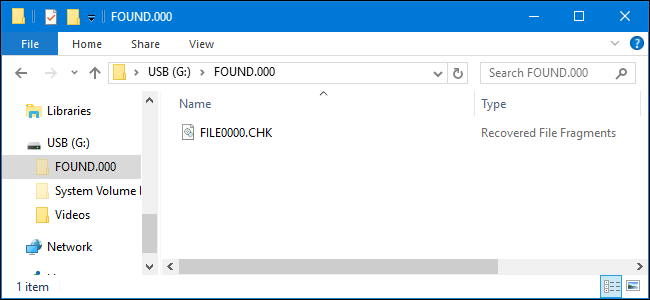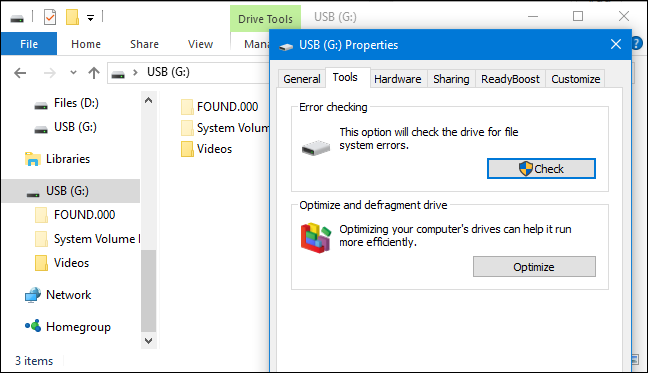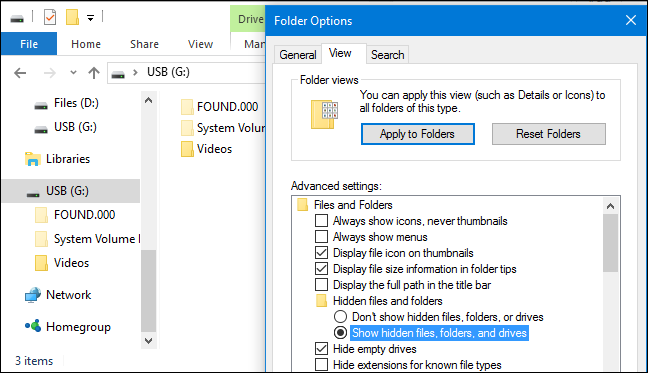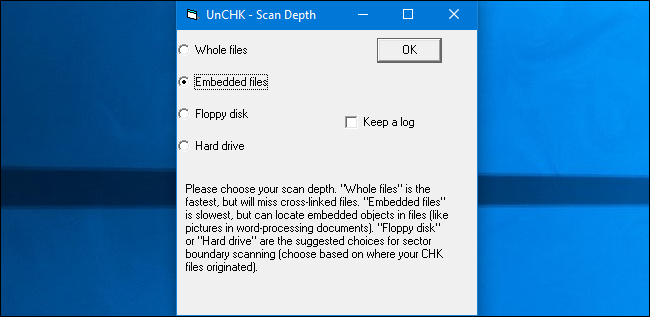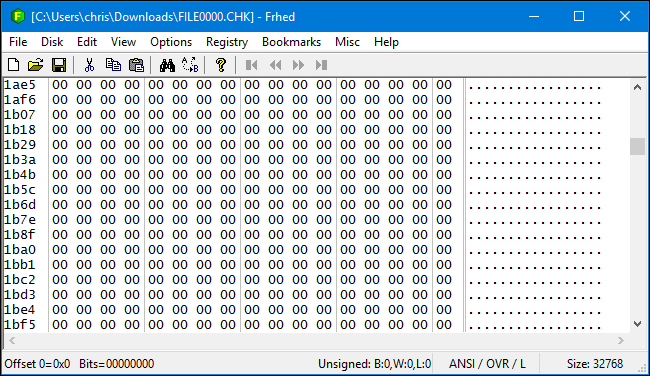Quick Links
On some volumes, you may see a new folder called FOUND.000 with a file in it using the .CHK extension. Here's where those come from, and what they're for.
These Are Fragments of Corrupted Files
Windows' built-in chkdsk tool, short for "Check Disk", creates this folder and file. Windows automatically runs Check Disk when it notices a problem with a file system. Those .CHK files are fragments of corrupted data---rather than deleting any corrupted data it finds, Check Disk puts it in a folder for you.
For example, this can occur when a computer suddenly loses power, or when you remove a USB drive from the computer while a file is being written to it. The process won't finish and any files being written will only be partial, corrupted files. Check Disk will fix the file system and take that partial bit of a file, placing it in a FOUND folder.
Where You'll Find .CHK Files
The folder and file are found on the same partition where the error occurred. For example, if you find a FOUND.000 folder and .CHK file on your USB drive, it contains fragments of one or more files recovered from your USB drive itself. If you find a FOUND folder and .CHK files on C:, your system drive, it contains file fragments recovered from the C: drive, your system partition.
These files only appear when you have Windows set to show hidden files. You'll need to set File Explorer or Windows Explorer to show hidden files or Windows will hide this folder from you.
How to Recover Data From .CHK Files (Which Isn't Guaranteed)
Windows labels .CHK files as "recovered file fragments". A single .CHK file may actually contain one or more complete files, fragments of a single file, or fragments of multiple files. You usually won't be able to recover much data from .CHK files.
If you didn't lose any important data, you don't need to mess with any .CHK files you find. You can just delete any .CHK files and FOUND folders. You'll probably just want to ignore or delete these files in most situations. You'll have an easier time recovering any lost data from any backups you have, if possible.
If you did lose some important data and you spot a FOUND folder and .CHK files, there's a small chance you may be able to recover some of it, depending on the type of data inside it. For example, fragments of archive files are generally worthless without the rest of the archive. However, a fragment of a text file might be valuable---you might be able to recover some important text.
There are a variety of tools for recovering data from CHK files, including UnCHK. This tool attempts to find whole files and embedded files inside one or more CHK files, extracting them where possible.
To see what your CHK file might contain, you can also try opening it with a hex editor like Frhed. This will allow you to read text inside the file, which might help you learn exactly what the CHK file contains.
Even if you can't read any data in the hex editor, that doesn't mean the file is worthless. But, if all you see are a bunch of 00's, that means the file is completely empty.
In the case of our CHK file, we found that the file was actually completely empty. This may happen in some cases, and is a good example of why you can't necessarily expect to recover anything at all from a .CHK file.
If you can't recover any data---or don't need to---feel free to delete the FOUND folder and .CHK files.

